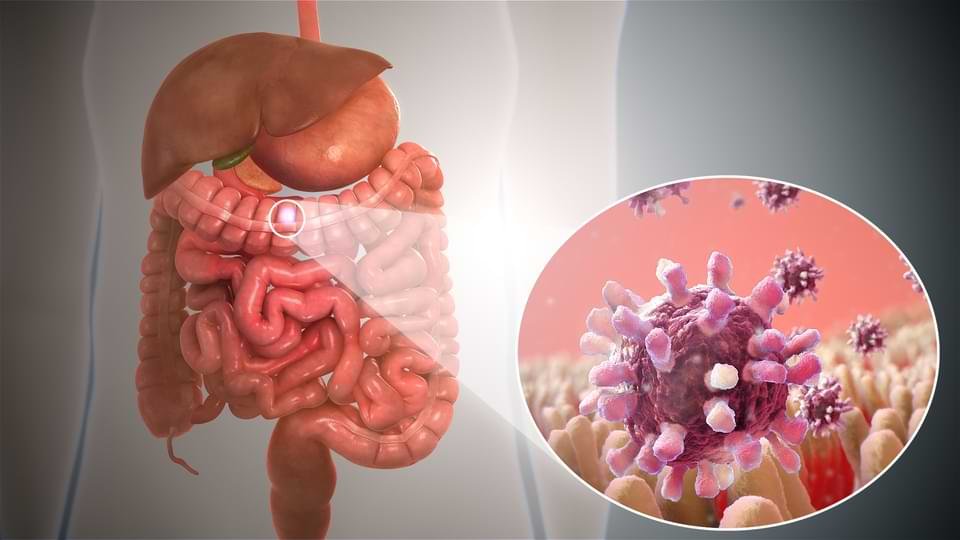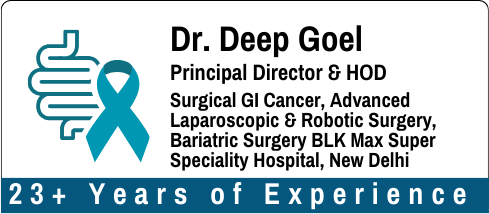Silent Signs of GI Cancer: Symptoms You Shouldn’t Ignore

Gastrointestinal (GI) cancer is one of the most prevalent and deadly forms of cancer worldwide. It refers to a group of cancers that affect the digestive system, including the stomach, intestines, pancreas, liver, colon, and rectum.
The World Health Organisation estimates that colorectal cancer alone accounts for nearly 10% of all cancer-related deaths globally.
The challenge with GI cancer is that its early symptoms are often mistaken for minor digestive issues, leading to delayed diagnosis and treatment. By the time clear signs emerge, the disease may have progressed to an advanced stage, reducing treatment success rates.
Dr. Deep Goel, a leading gastrointestinal cancer surgeon in India, underscores the importance of early intervention, “Identifying GI cancer signs as soon as possible results in better survival outcomes. Many of these symptoms are easy to overlook. Awareness of these silent indicators among general people can save many lives.”
This blog discusses how to detect GI cancer early and suggests effective prevention strategies.
What Are the Early Symptoms of Gastrointestinal Cancer?
Below are some key early symptoms of gastrointestinal cancer to watch out for:
1. Persistent Changes in Bowel Habits
Chronic constipation, diarrhoea, or unusual stool consistency can be one of the silent signs of GI cancer. If you notice uncommon signs of gastrointestinal cancer, such as narrow stools and a feeling of incomplete evacuation, consult a doctor.
2. Unexplained Weight Loss
Losing weight unexpectedly without changes in diet or exercise routine can be alarming. Unintentional weight loss over a few months, especially when accompanied by digestive discomfort, could be a warning sign of gastrointestinal cancer.
3. Abdominal Pain and Discomfort
While occasional stomach pain is normal, persistent pain, bloating, or a feeling of fullness after small meals may indicate a problem. If discomfort worsens over time, it is important to understand how to detect GI cancer early.
4. Blood in Stool or Vomit
Blood in the stool (either bright red or dark, tarry stools) or vomiting blood could indicate internal bleeding caused by GI cancer symptoms or other gastrointestinal conditions. In these cases, seek medical evaluation immediately.
5. Difficulty Swallowing
Swallowing should be an effortless process. If you experience increasing difficulty or pain while swallowing food or liquids, it could be an early symptom of oesophageal or stomach cancer. This is one of the subtle symptoms of GI cancer that should not be ignored.
6. Chronic Fatigue
Feeling constantly drained despite getting enough rest and nutrition can be a sign of an underlying issue. Early symptoms of gastrointestinal cancer may include persistent fatigue, which can be caused by internal bleeding leading to anaemia or the body’s immune response to cancer cells.
7. Nausea and Vomiting
Experiencing frequent nausea and vomiting without an obvious cause, such as food poisoning or stress, could be a warning sign. If nausea is persistent and occurs alongside other digestive issues like bloating, weight loss, or changes in appetite, a healthcare provider should be consulted.
8. Jaundice (Yellowing of Skin and Eyes)
Jaundice occurs when the bilirubin starts to build up in the bloodstream. This condition can indicate gastrointestinal cancer affecting the liver, pancreas, or bile ducts. Other related symptoms include dark urine, pale stools, and itchy skin.
9. Feeling of Fullness or Bloating
If you frequently feel overly full after eating small amounts or experience unexplained bloating, it could be a sign of GI cancer symptoms. Persistent bloating that does not improve with dietary adjustments should be evaluated by a medical professional.
10. Loss of Appetite
A sudden loss of appetite or feeling full quickly can be an early warning sign of gastrointestinal cancer. If this symptom is accompanied by weight loss or other digestive issues, it is vital to consider the possibility of GI cancer warning signs and seek medical attention.
A 56-year-old stomach cancer survivor treated by Dr. Deep Goel expressed, “For weeks, I struggled with nausea and a low appetite. I thought it was just ageing or stress. A routine check-up with Dr. Deep led to my diagnosis, and I am grateful I caught it in time. Awareness and screenings are life-saving.”
When to Seek Medical Help?
If you experience any of the above symptoms, it is crucial to monitor their persistence and severity. Seek medical help under the following circumstances:
- Symptoms last for more than two weeks– Temporary digestive issues are common, but symptoms lasting more than two weeks could indicate an underlying issue that needs medical evaluation.
- Symptoms worsen over time– If your symptoms progressively become more severe, it may signal a developing problem, including potential cancerous growths.
- Multiple warning signs appear together– Experiencing a combination of symptoms, such as unexplained weight loss, fatigue, and digestive distress, increases the urgency for medical assessment.
- You have a family history of gastrointestinal cancer– A genetic predisposition to GI cancer places you at a higher risk.
Dr. Deep Goel shares his advice, “Patients with a family history of GI cancer are at a higher risk and should start screenings earlier than the general population. If you have a close relative with GI cancer, talk to your doctor about a personalised screening plan.”
What Are the Ways to Reduce Gastrointestinal Cancer Risk?
Reducing the risk of gastrointestinal cancer involves adopting a healthy lifestyle and making informed choices about diet, physical activity, and medical screenings.
- Maintain a fibre-rich diet: A high-fibre diet aids digestion, promotes gut health, and helps prevent the formation of polyps.
- Limit processed meats and alcohol consumption: Processed meats contain harmful preservatives that may increase the risk of colon cancer, while excessive alcohol intake can lead to liver damage.
- Avoid smoking: Tobacco use is strongly linked to cancers of the oesophagus, stomach, and pancreas.
- Stay physically active: Regular exercise helps regulate body weight, improves metabolism, and supports overall digestive health, reducing inflammation and the risk of developing tumours in the digestive tract.
- Get regular check-ups, especially if you have a family history of gastrointestinal cancer: Regular screenings, including colonoscopies and endoscopies, can help detect cancer at an early stage when it is most treatable.
A patient of Dr. Deep Goel who sought treatment for ulcerative colitis tells his story, “I faced continued abdominal cramps and diarrhoea, thinking it was just stress-related. When the symptoms got worse, I saw blood in my stool. Dr. Deep’s prompt diagnosis checked me for ulcerative colitis, and he provided me with the right treatment and psychological support. Thank you, Dr. Goel, for your expertise.”
Conclusion
Many silent signs of GI cancer can be mistaken for common digestive issues. However, recognising subtle symptoms of GI cancer and seeking timely medical attention can make a difference in treatment success. Regular screenings help identify precancerous changes and tumours at an early stage, significantly improving treatment success rates.
If you notice early symptoms of gastrointestinal cancer, consult a doctor immediately.
FAQs
1. Can gastrointestinal cancer be detected through a blood test?
Blood tests, such as tumour markers and liver function tests, can provide clues, but a definitive diagnosis requires imaging and biopsy.
2. What role does gut microbiome play in GI cancer risk?
An imbalance in gut bacteria has been linked to inflammation and an increased risk of certain gastrointestinal cancers.
3. Can gastrointestinal cancer develop without symptoms?
Yes, GI cancer may not present noticeable symptoms in its early stages, which is why regular screenings are important for early detection.
4. How long does it take for GI cancer to develop?
GI cancer can take years to develop, often starting as benign polyps or lesions before progressing into malignancy.
5. Are there non-invasive tests available for detecting GI cancer?
Yes, stool-based tests can help detect early signs of colorectal cancer without requiring a colonoscopy.
Explore more blogs: How Lifestyle Affects Gastrointestinal Cancer: Risks & Prevention

